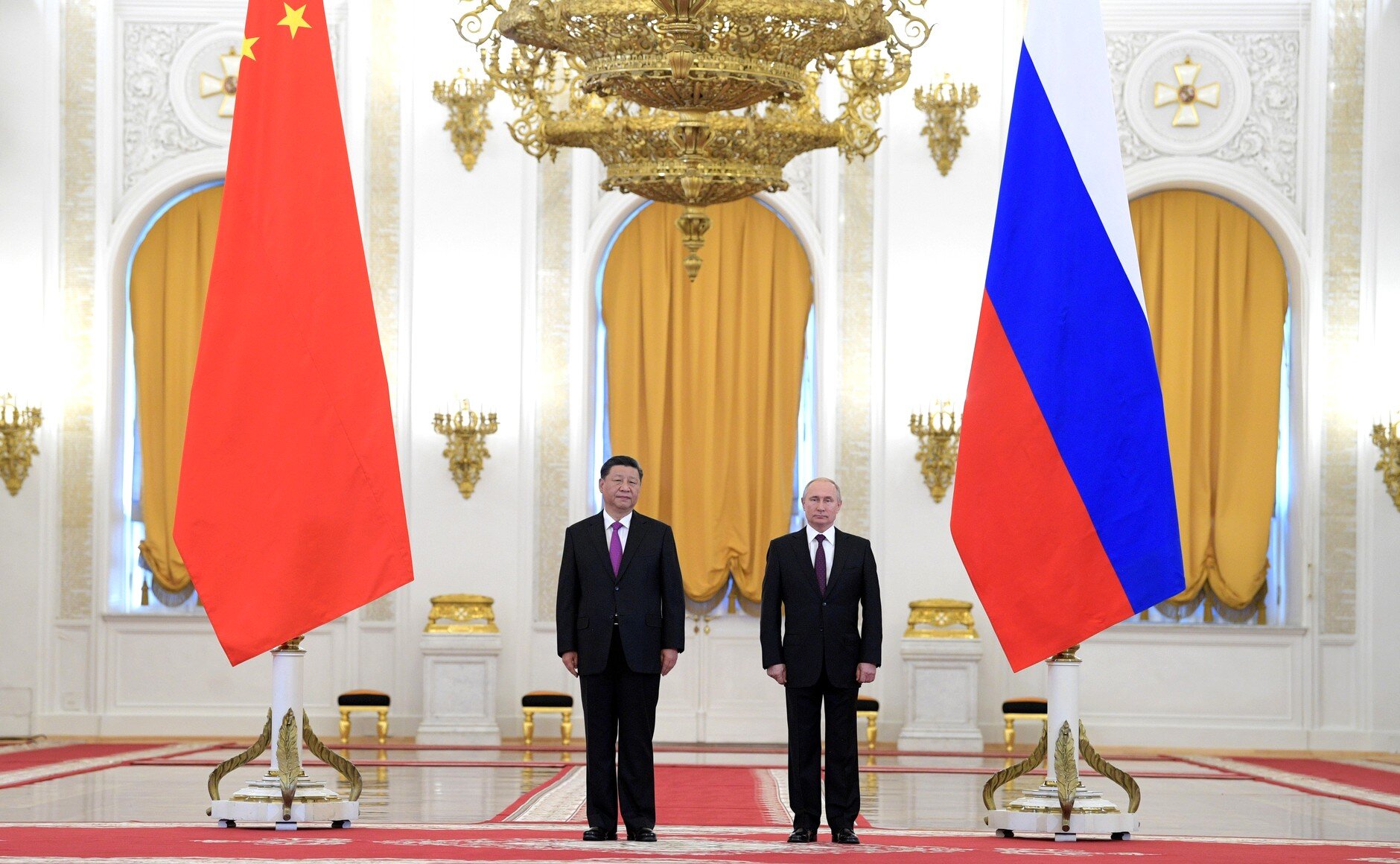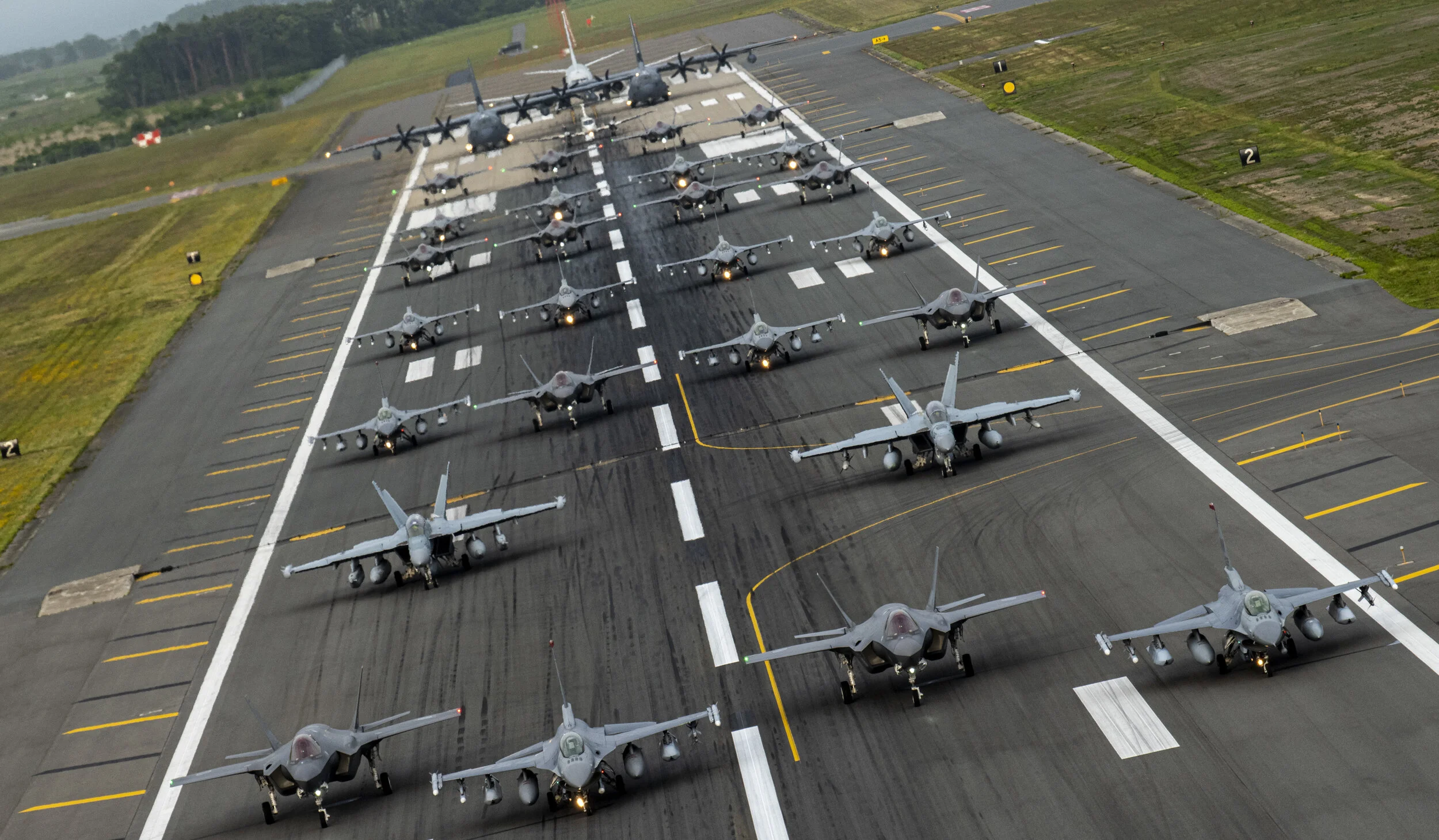China has the world’s largest navy, but there are important questions about its ability to contest the United States on a global scale. To do so, China would need more overseas bases than the two it currently has in Djibouti and Cambodia. Similarly, its aircraft carriers cannot sustain high-tempo aviation operations beyond the First Island Chain for an extended period. Developing super-quiet attack submarines would markedly improve China’s ability to conduct blue-water operations. However, to date, China has not fielded submarines that match the technological capabilities of U.S. boats. A careful examination of China’s naval strength shows that while it is well-positioned to wage a war close to its shores, the PLAN is not a global peer of the U.S. Navy.
Moving to an offshore balancing strategy for East Asia
The balance of power in East Asia has shifted in China's favor, but it does not follow that China constitutes a major threat to the territorial integrity or political independence of all neighboring states. As DEFP Non-Resident Fellow Peter Harris argues in a new explainer, upholding peace and stability in East Asia does not require U.S. military primacy. U.S. efforts to dominate the region could backfire by intensifying the U.S.-China rivalry and plunging East Asia into a new cold war. A more sensible approach would be to move toward an offshore balancing posture that incentivizes capable regional states to provide for their own defense and deter Chinese aggression.
Lessons for Taiwan from Ukraine
The ongoing Russo-Ukraine war is analogous to a hypothetical war between China and Taiwan. Taiwan cannot assume the United States will fight on its behalf and should invest in anti-access, area-denial weaponry. While Taiwan can expect global support if attacked, challenges exist for aid to be delivered and employed. Sanctions against China are unlikely to deter them if they choose to invade Taiwan. Taiwan should learn applicable lessons from the war in Ukraine and use them to secure their continued safety and prosperity.
Semiconductors are not a reason to defend Taiwan
Many experts have expressed fears that China could either stage a hostile takeover of Taiwan’s semiconductor chip-manufacturing capacity or effect a critical disruption of chip supplies as a secondary consequence of a blockade or protracted invasion of the island. Some have therefore argued that these “nightmare scenarios” provide additional reasons for the United States to defend Taiwan. Neither of these scenarios, however, justify an explicit commitment to defend Taiwan or the risk of a great power war with China.
War is a choice, not a trap: The right lessons from Thucydides
A careful reading of the Greek Thucydides’ The History of the Peloponnesian War suggests that a U.S.-China war is hardly inevitable. Such a war is a choice, not a trap—and selecting the appropriate U.S. grand strategy is the way to avoid it. Despite China’s rise, the United States and its regional allies are in a strong position to maintain a regional balance of power that keeps a peace and serve U.S. interests in Asia.
Deterring a Chinese invasion of Taiwan: Upholding the status quo
The United States has an interest in avoiding a Chinese invasion of Taiwan, but America’s overriding concern is to avoid a ruinous war with China. Proposals to deter China by bolstering U.S. military deployments in the Western Pacific are unlikely to succeed and fraught with danger. Instead, the United States should encourage Taiwan and other regional actors to develop their own means of deterring a Chinese invasion. If calibrated correctly, Taiwan and others may be able to threaten a response severe and credible enough to deter Beijing.
How militarily useful would Taiwan be to China?
Amid the debate over U.S. policy toward Taiwan, advocates of an overt declaration to defend the island tend to assign Taiwan significant value, while proponents of abrogating U.S. defense commitments often downplay its utility. The truth is somewhere in the middle. The military value of Taiwan to China must be viewed in the aggregate. Occupying Taiwan would offer China some important military advantages, but China’s current technical deficiencies limit Taiwan’s overall utility to China, and occupying Taiwan could stress Chinese military and security forces.
Raising the minimum: Explaining China’s nuclear buildup
China’s recent nuclear expansion, consisting of new ICBMs, submarine-launched weapons, and a new generation of strategic bombers, suggests a significant recalibration of Beijing’s traditional “minimum deterrence” strategy. Washington should avoid overreacting to this shift in Chinese strategy, prioritize preserving a strong nuclear deterrent that focuses on survivability, and accompany any modernization efforts with attempts at dialogue, arms control, and the development of crisis management mechanisms.
The folly of a democracy-based grand strategy
Making democracy promotion abroad a centerpiece of U.S. foreign policy is a mistake that counterintuitively harms the ability to spread democracy and advance U.S. interests. China, Russia, and other non-democracies—informed by years of U.S. military and non-military actions—view democracy promotion and regime change as linked threats to regime security. Promoting democracy, outside of serving as an exemplar, is counterproductive since regimes often respond to this outside pressure by suppressing democracy at home and aggressing against U.S. interests.
Phantom Empire: The illusionary nature of U.S. military power
U.S. bases and troops abroad no longer translate into influence, making America’s far-flung garrison a “Phantom Empire.” The refusal of U.S. leaders to countenance drawdowns in most cases removes what leverage U.S. troops might provide over host nations. U.S. commitments in Europe, the Middle East, and East Asia yield example after example of countries whose close defense relationship with the United States does not prevent them from going their own way geopolitically.
What the Quad is, is not, and should not be
The Quad has transformed in recent years into a multilateral forum to enhance military coordination in the Indo-Pacific among the U.S., Japan, India, and Australia and to address issues of mutual concern, including China. But the Quad is not—and should not become—an anti-China alliance. Pushing the Quad toward such a goal undermines U.S. interests and risks unnecessary conflict, possibly even nuclear war.
Perils of pushing Russia and China together
While much has changed since the Cold War, it remains in the U.S. interest to avoid Russia and China—the only two near-peer, nuclear-armed U.S. competitors—combining their economic and military power. The current U.S. approach of dual containment encourages their cooperation. Mounting a global campaign pitting democracies against autocracies adds to that pressure. The U.S. should focus on reducing tension with Moscow to improve the chances of productive diplomacy and limit incentive for Russia to cooperate with China against the U.S.
Global Posture Review 2021: An opportunity for realism and realignment
The Biden Administration’s forthcoming Global Posture Review—a top-to-bottom examination of all overseas U.S. military bases and deployments—should jumpstart a needed shift in U.S. strategic thinking away from the leftover assumptions of the Cold War and the War on Terror. Through balancing and burden sharing in Asia, major troop reductions in Europe and the Middle East, and limiting presence deployments to preserve military readiness, the United States can realign its military posture to sustainably confront the challenges ahead.
The inevitable rise of China: U.S. options with less Indo-Pacific influence
China is destined to be the leading power in East Asia. It will soon have an economy much larger than that of the U.S., and its advantages in East Asia compared with the U.S. are compounded by geographic proximity and hence deeper economic ties to the countries of the region compared to the U.S. At the same time, the U.S. need not be directly threatened by the rise of China—if it focuses on balancing in ways that bring prosperity and avoid catastrophic war.
Why a Taiwan conflict could go nuclear
As discussion intensifies over U.S. policy toward Taiwan, including debates over the future of strategic ambiguity, nuclear concerns should be at the forefront. In the event of setbacks in a conflict over Taiwan, China could find itself willing to use nuclear weapons, even if it had not intended to do so before the start of hostilities. The U.S., too, could be forced to contemplate nuclear use in certain scenarios. The potential for miscalculation by each side is higher than commonly acknowledged.
“Great power competition” as an anachronism
Today, “great power competition” is too often invoked by advocates of a more militarily assertive foreign policy. The phrase represents a view of the world that is to a great extent zero-sum, in which the U.S. must constantly confront China and Russia abroad. This view is dangerously outdated; changes in the international system such as nuclear weapons and the end of territorial expansion mean that the great powers should move toward more cooperative relations.
U.S. foreign policy priorities for the next four years
The next four years are an opportunity for the U.S. to pursue a new, more realistic foreign policy. In addition to the urgent task of ending endless wars, the U.S. should focus on narrow missions in the Middle East to thwart anti-U.S. terror threats. In Europe, the U.S. should shift burdens to NATO members. And in East Asia, it should encourage allies to invest in defensive capabilities to strengthen deterrence. In all, abandoning the failed status quo in favor of a foreign policy based on restraint will mean a stronger America with more security at less cost and risk.
Assessing Chinese maritime power
It is at sea where the risk is greatest for a direct clash between Chinese and U.S. forces. But a closer look at Chinese maritime capabilities reveals a fleet that is powerful, but uneven and geographically constrained, with important capability gaps. This reality affords the U.S. time and strategic flexibility to pursue prudent policies that advance U.S. interests while avoiding a needless conflict.
Responsibly competing with China
Competition between the world’s two greatest powers is in some ways inevitable—but military conflict need not be. Geography, starting with the Pacific Ocean, and the positive sum outcomes of trade limit the dangers of competition with China. And U.S. allies, fortified with U.S.-supplied A2/AD defense systems and aided by other regional states, are capable of balancing a potentially expansionist China. That limits the risk of U.S.-China confrontation and the shadow it casts on cooperation in areas of overlapping interests.






















